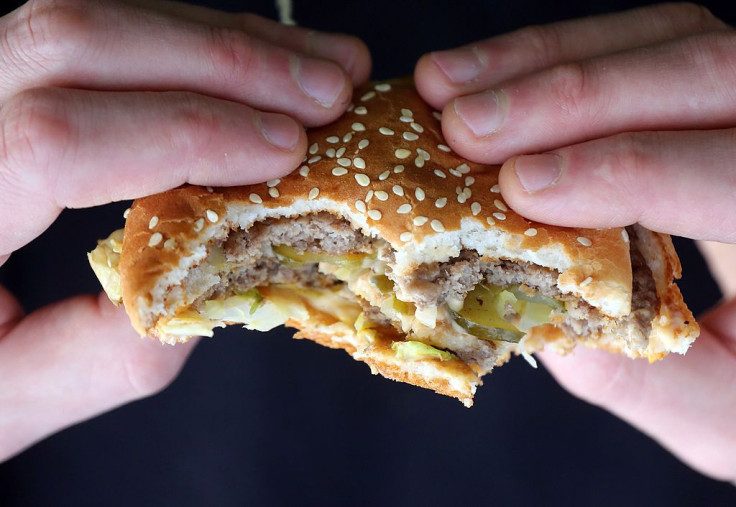Sleep Time, Duration Linked To Higher Fast Food Consumption And Lower Physical Activity

Adults know by now that they need seven to nine hours of sleep in order to stay in good health. But, the 50 to 70 million people in the U.S. who have a sleep or wakefulness disorder are proof that most people don't get adequate shut-eye. Previous studies have linked a lack of sleep to increased junk food cravings and weight gain — but new research suggests that in addition to sleep duration, late sleep time can negatively affect eating patterns.
For their study, researchers recruited 96 healthy adults between the ages of 18 and 50 who slept 6.5 hours or more. They wore actigraphs — a non-invasive method of monitoring human rest and activity cycles — for seven days, as well as tracked their food intake and physical activity. Researchers also analyzed their circadian rhythms and body fat. And results showed those who had a habit of delaying their bedtimes and sleeping for at least 6.5 hours ate more fast food, less vegetables, and worked out less. This was true despite the fact that late sleep times were associated with lower body mass index.
"Our results help us further understand how sleep timing in addition to duration may affect obesity risk," lead investigator Dr. Kelly Glazer Baron, of the Feinberg School of Medicine at Northwestern University, said in a statement. "It is possible that poor dietary behaviors may predispose individuals with late sleep to increased risk of weight gain."
This isn’t the first study to link poor sleep to poor dietary behaviors. Past research has found that the circadian rhythm, or the body’s sleep-wake cycle, can set the tone for a healthy diet. The sleep-wake cycle is also intertwined with the gut microbiome and could have adverse effects on metabolism, possibly increasing the risk of obesity; then, there's fast food itself. Eating it every once in awhile isn’t life threatening, but more often than not these meals contain large amounts of carbohydrates, added sugar, unhealthy fats, and salt. In fact, research has shown that a lot of changes occur in the body after eating just one Big Mac. The 540-calorie burger can change how food is emptied from the stomach and digested into the bloodstream, and ultimately lead to insulin resistance — a known precursor to diabetes.
Poor sleep has also been linked to chronic diseases, such as diabetes, mental health issues and heart problems. One study has found that people who got less than six hours of sleep a night had a four times greater risk of dying over a 14-year period. In other words, getting enough sleep at night could be a matter of life and death.
Source: Baron K, et al. Associations Between Sleep And Circadian Timing With Measures Of Obesity, Diet And Exercise Among Healthy Adults. Sleep. 2016.
Published by Medicaldaily.com



























